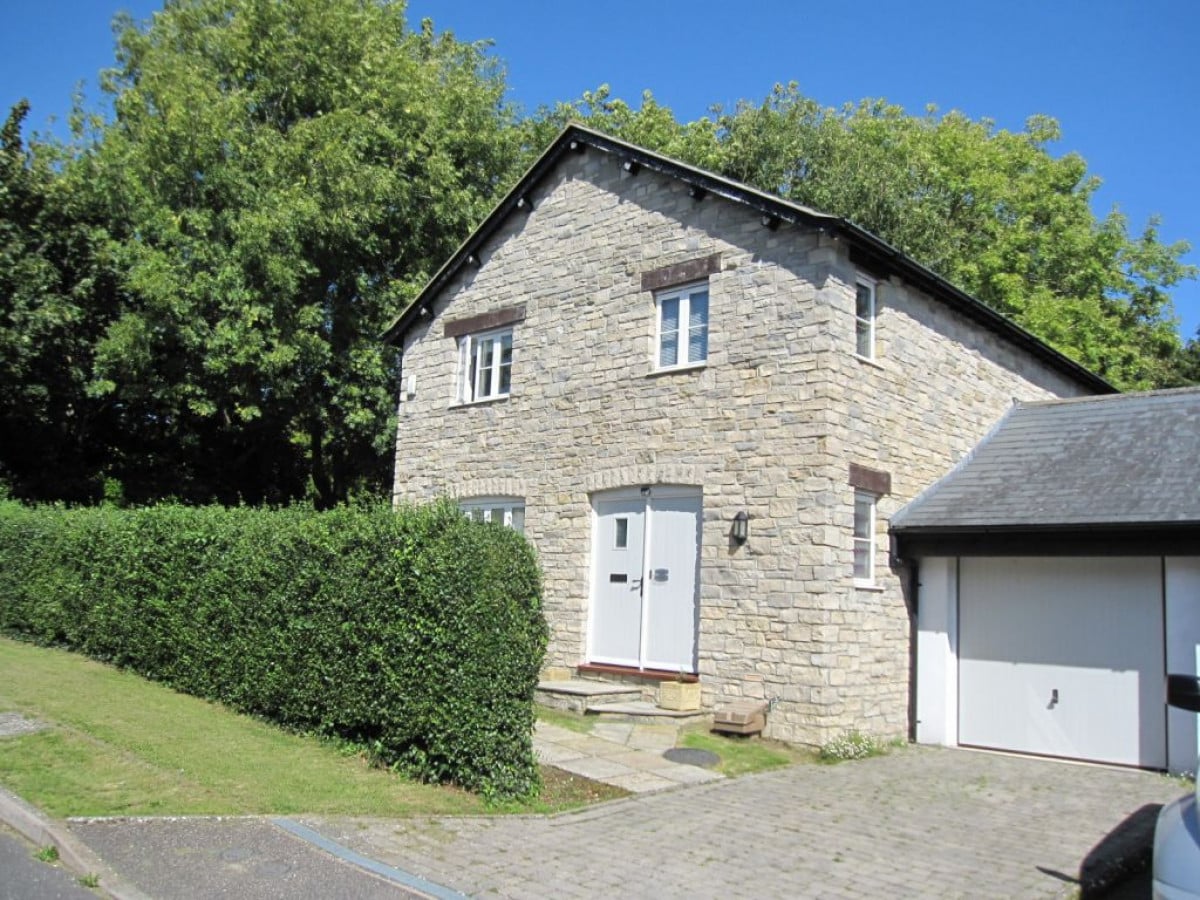Save Pounds by Saving Power: Top Tips for an Energy-Efficient Home

The UK's rising inflation and high energy bills have left homeowners feeling under pressure to manage the day-to-day running costs of their homes and the fuel-hungry appliances inside them.
While a cost-of-living crisis can cause uncertainty in the housing market, one certainty is people's shared interest in looking for cost-effective and eco-friendly measures to adopt in homes. Having a sustainable property and knowing how to source power differently (and more efficiently) can help to reduce a home's running costs.
According to the Office for National Statistics (ONS), 50% of homeowners, in fact, are using less energy in their homes and finding alternative ways to make properties more energy-efficient. Making a few energy-saving changes such as upgrading windows or installing smart home technology as well as renewable energy options can make a difference.
This article explores some practical ways to improve your property's energy efficiency and help to reduce your monthly heating costs. With summer drawing to a close, it's a great time to prepare for the colder months ahead.
Upgrade Your Windows
Old, draughty windows can lead to substantial heat loss and higher energy bills. Switching to double or triple-glazed windows is one of many home improvements to enhance insulation and reduce your heating needs. While installing new glazing throughout your home can be pricey, it's a smart long-term investment.
If you have an older property and want to retain the character of feature windows, opt for draught-proof sash windows to insulate your home and prevent air gaps. Air pockets in window frames let cold air in and are the main cause of rattling, loss of heat and dust build-up. In addition to cutting down on unwanted draughts, upgrading your windows can minimise heating bills, improve your home security and help to alleviate outdoor noise too. New glazing and draught prevention, therefore, are the most effective window upgrades for cutting energy waste and your bills.
Insulate Your Loft
Does your home often feel draughty upstairs? Heat rising through your roof and escaping from your loft is probably to blame. A lot of precious warm air vanishes out the top of your home and by adding insulation to your loft, you'll see a big difference in energy efficiency and comfort. This easy insulating upgrade creates a barrier that prevents heat from leaking through the roof.
By keeping more heat inside the living room spaces downstairs, you'll rely less on cranking up the thermostat to heat the whole house and the rooms up the stairs, and ultimately wasting money on unnecessary heating costs. Loft insulation can lead to substantial savings, even thousands of pounds per year on your energy bills, plus your whole home will feel a lot warmer in those colder months of the year.
Install Smart Technology
The current trend for installing smart home technology is another way for homeowners to be more energy-efficient and save money on utility bills. Devices like smart thermostats and smart lighting systems can help homeowners save money by optimising energy consumption. Thermostats can learn a homeowner's schedule and preferences, automatically adjusting heating and cooling to reduce energy use when the homeowner is away. Similarly, smart lighting can be programmed to turn off automatically when a room is not in use.
In addition, by being more energy-efficient, smart tech can help to reduce utility bills. For instance, smart water heaters can be programmed to heat water only when it is needed, leading to savings on electricity or gas bills.
Choose Energy-efficient LED Bulbs
Replacing traditional bulbs with LEDs is one easy way to chip away at your home's energy use. The savings from LEDs alone may seem small, but they add up, especially in homes with lots of lights. Though not a dramatic change, LED bulbs do trim your electricity bills and environmental impact.
LED light bulbs use up to 90% less energy and can last years longer than incandescent bulbs. With lower energy and longevity on their side, LEDs save you money over time. Plus, you'll feel good about reducing your carbon footprint with this simple swap. As each bulb burns out, make the energy-efficient switch to LEDs for minor savings that benefit both your purse and the planet!
Opt for Renewable Energy and Appliances
Looking into renewable energy options like solar panels and heat pumps has become popular in recent years. Today's homeowners seem more interested in installing solar panels and efficient boilers for cost-effective reasons with a correlation of landlords reaping more success from making sustainable efforts. They are realising better returns on their investments and benefitting from increasing rental yields thanks to tenants choosing more eco-friendly homes.
Once installed, renewable options provide heating and electricity with less long-term maintenance. For example, solar powers cut energy bills by an estimated £330 each year (in an average UK household). However, homeowners will need to account for the cost of installation.
Meanwhile, when it comes to the energy efficiency of appliances, they can make a surprising difference in your home's electricity use. Ovens, fridges, microwaves, and washers all carry ratings from A+ to G. More efficient models use less power, saving you money over time. When replacing worn-out appliances, make the energy rating a top consideration. Choosing higher-rated machines curbs energy waste from daily tasks like cooking, cleaning, and food storage. Over years of use, an energy-savvy appliance purchase really adds up, taking a big bite out of your electricity bill.
Replace Your Ageing Boiler
Old, inefficient boilers can be a huge drain on energy usage in the average UK home. Upgrading an old boiler to a new, more efficient boiler is the best way to reduce home energy and lower your heating bills. Buying a new boiler is the most energy-efficient decision you can make because they require far less power to heat your home. Combination condensing boilers are particularly effective, using the latest technology to minimise fuel consumption.
Replacing an outdated boiler with a newer, greener model will cut your energy bills and is a great investment as it pays for itself in the long run through substantial energy savings. Modern boilers use much less power to keep your home warm and a combi boiler is even more effective to lower your fuel bills.
Having an energy-efficient home can be healthy for your household budget. Making some strategic upgrades and changes around your home can help you cut your home's energy usage and save extra money when your purse strings are a little tighter than normal. With experts warning energy costs will remain high as we edge towards autumn/winter, homeowners might continue to face the pinch of rising costs. By implementing some energy efficiency measures might help you to both save energy around your home and make that all important significant savings on your bills.
Image is from a Detached House for Sale in Weymouth available Sept 2023. For the full listing, please click here.

Selling This Spring? Here’s How to Get Ahead of the Competition
26.02.2026Spring is one of the busiest times to sell, but more listings mean more competition. Here’s how to price, photograph and position your home to stand out and secure early offers.
.png)
5 Costly Mistakes Landlords Are Making in 2026 - And How to Avoid Them
23.02.2026The rental market is evolving fast. From compliance to pricing and ownership structure, here are five costly mistakes landlords are still making - and how to avoid them.

Why Tenant Referencing Matters More Than Ever When Letting a Property
19.02.2026A practical landlord guide to tenant referencing, Section 21 changes, court delays, and why rent guarantee insurance adds peace of mind.
.png)
Sell or Let Your Property Yourself – Why More UK Homeowners Are Choosing to Go Online
03.02.2026Selling or letting a property no longer has to mean handing over thousands of pounds to a traditional estate agent.
.png)
Before You List: Watch Emoov’s Top Tips for Home Sellers
20.01.2026Thinking about selling your home? Before you list, it’s worth taking a few minutes to watch this short video from emoov, where we break down the key steps every seller should take before going live online.

Why 2026 Could Be the Smartest Year Yet to Grow Your Rental Portfolio
15.01.2026Thinking of growing your rental portfolio this year? You're not alone. New data shows that rental yields are climbing across the UK, with smart landlords expanding through limited companies, targeting high-performing regions, and refinancing to reinvest.









